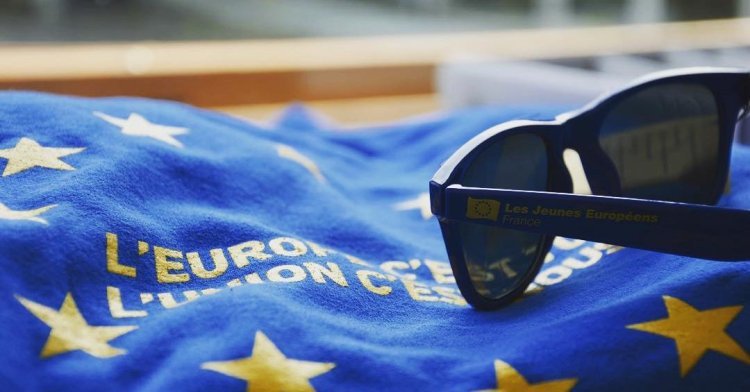We are living the times of faster economic integration since the Maastricht treaty . During the last 2 years the EU has created the European Semester, the European Financial Stability Facility (to be followed by the European Financial Mechanism, a mini European Monetary Fund) together with other surveillance authorities and committees in order to give a short term answer to the crisis. More in the mid-term, the door is open to raise own resources for the union in the shape of taxes on capital or carbon or VAT, financing the EU debt with Eurobonds and the creation of an EU treasury . The steps in this direction –specially after the European Council meeting of July 21st- have been the only way to show the people and the markets that the EU has a grasp on the crisis and can face the repayment of the accumulated debt.
Before the meeting of July 21st Germany and France have been doing everything in their hands to pospone doing what needed to be done; the result beeing a constant increase in the numbers of vulturs profiting from the European economies. It is not a tabu anymore, President Sarkozy himself acknowledged last month that “We can’t keep having a currency disconnected from economic policy". Chanciller Merkel with all her reservations finally seems to agree to walk the path towards an European Economic policy.
What we are seeing is that the current generation of European leaders, after having tested any other option on the table, are finally realising –at a high cost in credibility for Europe and themselves- that the only way forward is more Europe, the federalist way. These “New Federalists” have in common that none of them have lived a war and hence their vision for Europe is different from those fathers of Europe -Adenauer, Schuman, Churchill, Monnet...- from whose heritage the EU has lived until today. If there was any doubt, today we have the confirmation that the “old” federalism is over. Whether we like it or not, the pragmatic federalism of the style of Merkel and Sarkozy is what has to drive the European integration in the years to come.
The “old” federalists were visionaries; they were arguing in favour of more European economic integration only when followed at the same pace by political integration, democratically legitimated by the European people. They defended that the sharing of sovereignty between local, national and supranational levels is necessary but no delegation of sovereignty should take place without democratic control. This is why institutions like the European Parliament representing the European citizens and tools such as a European Constitution were conditio sine qua non to advance in the path of further economic integration. Economic integration without political integration –i.e. the people have no control on setting the rules that regulate the markets- would lead to a lack of legitimacy of the European project. They were visionaries but they were right; current EU legitimacy crisis has its roots in the lack of popular identification with the European project.
The “old” federalists argued from the beginning that a common monetary policy cannot survive without a common economic policy. During the last decade Greeks and Spanish have been borrowing money at german interest rates which didn’t match their productivity; this time of living beyond their possibilities has created an indebtment that now they can’t pay back. With an EU treasury, backed with Euro-bonds and a proper European budget the current crisis could have been a lot better managed and the current bailouts would not have happened because this over-indebtment would not have been allowed.
But let’s go back to the “new” federalists. The “new” federalists are hardcore realists –the same realists that 4 years ago were saying that more integration was not necessary and that an EU treasury would never happen.
The problem with “realists” is that, contrary to visionaries, they are in a constant state of improvisation –no vision = no plan-. Our European leaders have been grossly improvising since 2008 and the financial markets are punishing us all for the chaos linked to improvisation at 27. Secondly there is the problem of democratic legitimacy; the measures adopted during the last 3 years have been taken behind closed doors and observed with scepticism by the majority of europeans. This constant improvisation rules out any public participation in the current process of European construction; not even the European Parliament -already seen by many as being to far away- hasn’t been allowed to participate in the creation of the latest institutional fixes such as the European Financial Mechanism. What is worst is that so far the “new” federalists haven’t expressed any regret or worry about this current lack of democracy in the current shape-up of the EU. Not surprisingly the EU is in the lowest popularity rates since its creation.
Many claim that the time for visionaries has passed, and with it went also the first chance to build a political EU capable of controlling the economic sphere; an EU governed by the people and for the people. It is claimed that the realists have imposed their lack of vision; the result being that the necessity of more integration is driving the agenda but the democratic nature is missing in most of the decisions. Something is wrong when to save the European peoples they have to be locked outside the decision room...
It is true that we are in the path of a transfer union which will lead us to a fiscal union and which will bring with it a European treasury and European bonds. Eventually, having an European fiscal and monetary policy might force the creation of a political union. After all, the political integration in Europe after WWII has followed the economic integration, and it is important to underline that the political union has been a consequence, and not a cause, of the economic integration. Regretably, it can be argued that the failed results of the referendums on the EU Constitutional Treaty in France and the Netherlands and after the failed Lisbon treaty referendum in Ireland also prove that political integration cannot preceed economic integration. Yet political integration has to be encompassed –even when a bit delayed- with any progress in European integration. Therefore, the latest developments in the creation of tools of economic policy should open the door to further participation of the European people in the EU decision making. Failing to do so puts the credibility of the European project at stake.
A lot less romantic than one could have imagined, the path towards an European federation is not led by the European people, not even by strong leaders with a vision, it is led by markets alone. However we have learnt from history that democracy doesn’t happen if people don’t ask for it. It is therefore of high importance to pursue the vision of an “European democracy”, and this cannot be done by our “new federalists” alone. Against all odds the people of Europe have to retake control of the European process and for this visionaries are still very much needed!


Follow the comments: |
|
